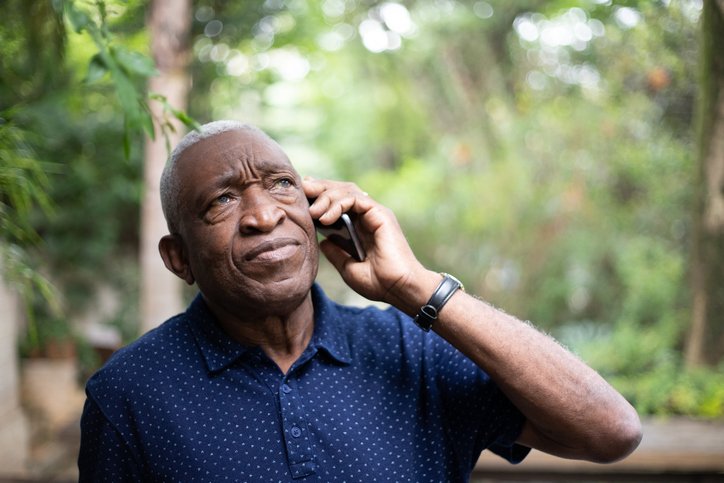How to Help a Loved One with Hearing Loss
If you suspect an older loved one might be hearing impaired, it’s likely not just your imagination.
According to the National Institute on Deafness and Other Hearing Disorders, 25% of seniors between the ages of 65 and 74 suffer from some type of hearing loss. That number jumps to an astounding 50% for those who are 75 and older. The type of hearing loss experienced by seniors can vary from mild to severe. Some types of hearing loss can be reversed when caught early, while hearing aids and other interventions can improve the quality of life for the person experiencing more advanced or particular hearing losses. If you’re preparing to help a loved one address their loss of hearing, it can be helpful to understand what causes it, which treatments are available, and how to approach this sometimes difficult conversation with an older loved one.

Aging is one of the primary reasons that we develop hearing loss.
Medically, it’s called presbycusis. As we get older, much as with our other organs, our ears don’t work as efficiently as they did when we were younger. Age-related hearing loss can happen in one or both ears at such a gradual pace that profound hearing loss may occur before the sufferer fully notices. Studies show that those with hearing loss take an average of 10 years to seek help, such as seeing a hearing specialist or getting fitted for hearing aids. If you notice that an older loved one is experiencing hearing loss, they don’t need to suffer.
Keep a watchful eye…and ear.
The early symptoms of hearing loss can be hard to detect, but paying attention can help your loved one to seek treatment sooner. People with hearing loss may begin to withdraw from and avoid noisy environments, such as busy restaurants. You may notice that they’ve come up with coping strategies of their own for dealing with their hearing loss. They may nod during conversations without truly engaging or turn up the television to a loud volume that is uncomfortable for others. You may notice that their facial expressions betray frustration during conversations, indicating that they cannot understand or hear what is being said. Although these examples don’t seem life-altering, not being able to understand speech or participate in conversations can feel very isolating. Over time, the senior may withdraw from socializing, which can in turn negatively impact his or her mental health.
Hearing loss varies greatly.
The type and severity of your loved one’s hearing loss can affect just how much their daily life and satisfaction are impacted. With mild hearing loss, your loved one may fail to hear subtle sounds, such as soft-spoken words, but they can still participate in conversations. Occasionally, they may ask the speaker to repeat themselves or to “speak up.” Those with moderate hearing loss may have growing difficulty understanding speech. They may need to rely on facial expressions to keep up with conversations or be unable to hear you when there is too much background noise. With profound hearing loss, your loved one may be unable to hear loud noises without hearing aids, such as fire alarms, threatening their safety. Because hearing loss can escalate quickly, it’s important to address the issue as soon as you notice it.
If your friend or family member is showing symptoms of hearing loss, here’s what you can do to help them:
- Choose a quiet, private place to talk.
- Resist bringing up the hearing loss when you or they are frustrated. Instead, set aside a time to have this important and sensitive conversation.
- Be empathetic. Ask them if they’ve noticed a change in their ability to hear. Likely, they have some inkling that their hearing is in decline.
- Provide support. Offer to take them to a hearing specialist, or otologist, who can help determine the cause and severity of the hearing loss and outfit them with hearing aids, if appropriate.
Those with hearing loss don’t necessarily need to accept it as a life sentence; there is hope.
Hearing aids, cochlear implants, medications, wax build-up removal, or surgery may help those with mild to profound hearing loss reclaim more of the ability to hear. With your support, your loved one can feel empowered to address their hearing issues and enjoy their golden years more comfortably.
We hope this information is helpful to you and your aging loved ones. If you need additional resources or if we can be of assistance to you in any way, you’re always welcome to contact us.
About Vaughn Greene Funeral Services: For more than 20 years, Vaughn Greene Funeral Services has been providing a ministry of care to Baltimore’s African American community. As a leading local, minority- and family-owned provider, we promise to provide our highest level of service and respect to families who entrust us to honor their loved one. For more information, please call us at 410.655.0015 or visit us online at https://vaughncgreene.com/.







Comments